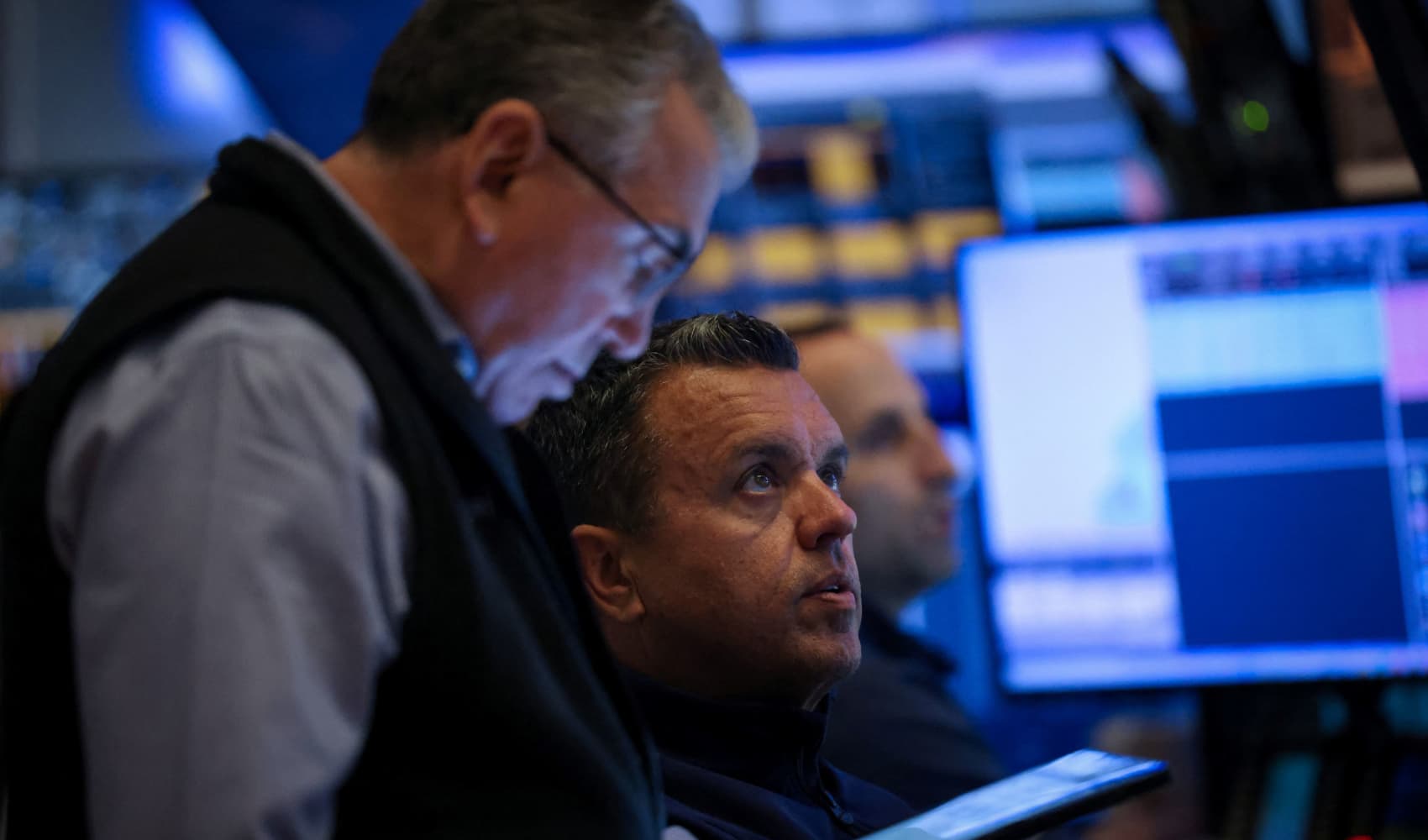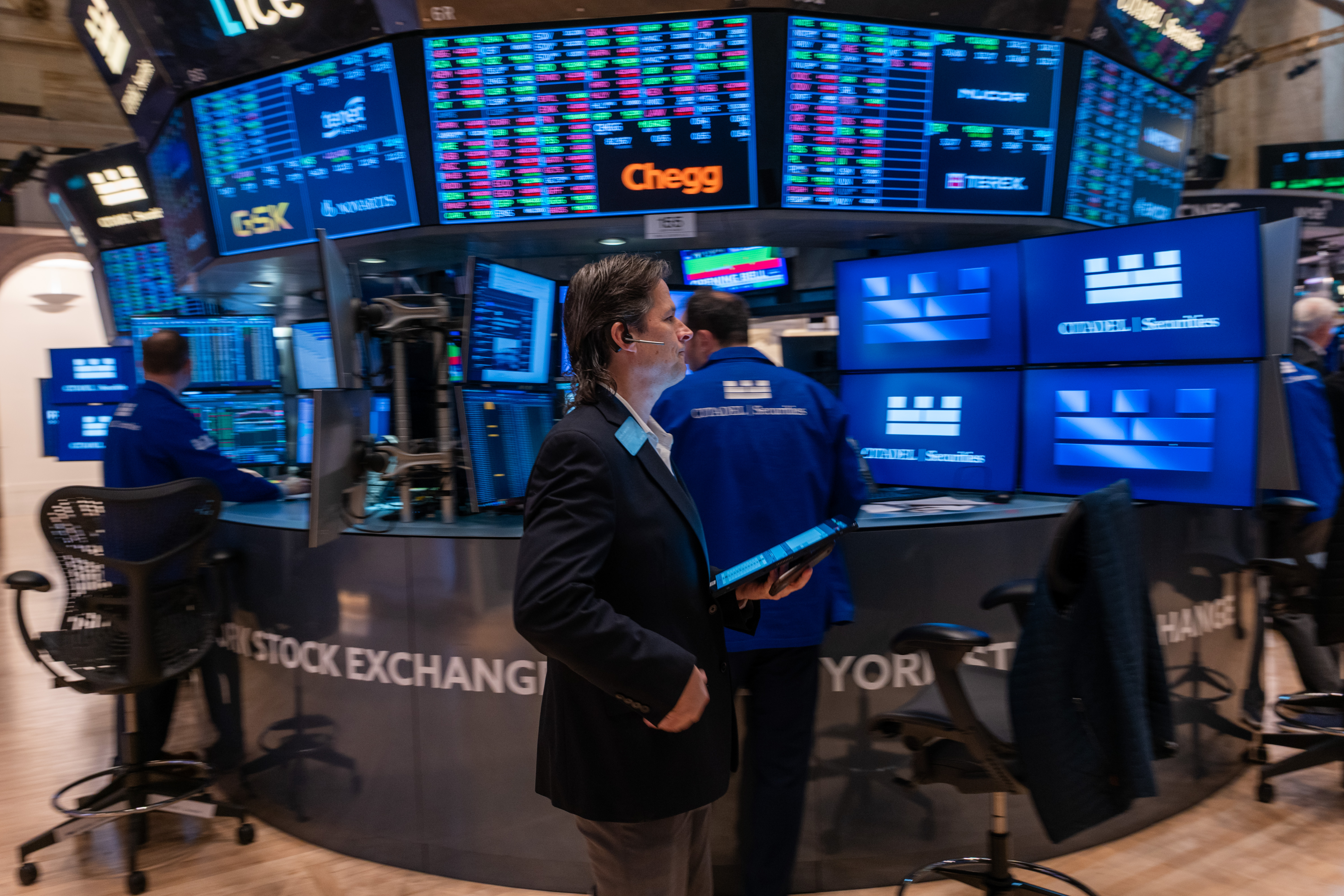FTSE 100 Soars: Why Europe Markets Closed Higher
Europe's Bull Run Continues: FTSE 100 Hits Milestone!
Introduction: A Glimmer of Hope in Uncertain Times
Hey there, market watchers! It's been a week of ups and downs, hasn't it? But amidst all the global trade jitters and economic worries, there's some good news coming out of Europe. European stocks have closed higher, fueled by positive earnings reports, proving that resilience and opportunity can still be found. Today, we're diving into the specifics, focusing on the impressive performance of the FTSE 100 and what it all means for investors like you.
European Markets Close Strong: A Friday to Remember
Friday brought smiles to investors across Europe as the markets painted the screens green. The pan-European Stoxx 600 index wrapped up the day with a 0.35% gain, proving that even in the face of global uncertainty, European companies can deliver. Think of it as a well-oiled machine humming along, despite a few bumps in the road.
Germany's DAX and France's CAC 40: Leading the Charge
The Stoxx 600 wasn't alone in its gains. Germany's DAX led the charge, closing up 0.8%. This robust performance suggests strong underlying economic activity in Germany, the powerhouse of Europe. France's CAC 40 also joined the party, rising by 0.45%. These two indices, often seen as barometers of European economic health, are signaling a positive trend.
The FTSE 100's Remarkable Run: A Decade-Best Streak
Now, let's talk about the star of the show: the UK's FTSE 100. After briefly dipping into the red (a momentary wobble, perhaps?), it powered through to close up 0.1%. But the real story isn't just the daily gain, it's the trend: this marks the tenth straight session in the green for the FTSE 100, its longest positive run since 2019! That's a streak that deserves a standing ovation, don't you think?
Why is This Important?
This winning streak is a testament to the UK market's underlying strength and resilience. It also provides a much-needed confidence boost to investors, signaling that opportunities exist even amid ongoing economic uncertainty. It's like finding a diamond in the rough!
Sector Performance: Who Were the Winners?
While the overall market picture was positive, some sectors performed better than others. Digging deeper into the sector breakdown can give us valuable insights into where the real growth is happening. Unfortunately, without more data, we can't pinpoint exact sector performance from the excerpt, but future articles will provide this level of detail. Think of it as peeling back the layers of an onion – the more you peel, the more you see.
Key Takeaways from CNBC's Live Blog
CNBC's live blog offered several key takeaways for investors. Let's break them down:
- Citi: Analyst earnings downgrades are a contrarian 'buy' signal. This suggests that some analysts believe that recent earnings downgrades may have been overdone, presenting a potential buying opportunity for savvy investors. It's a classic case of "buy low, sell high."
- Beaten-up chip stock BE Semiconductor rises more than 5%. This indicates a potential recovery in the semiconductor sector, which has faced challenges in recent times. Maybe the storm clouds are finally parting?
- Safran beat expectations amid trade war uncertainty. This demonstrates the resilience of certain companies, even in the face of global trade tensions. It's a reminder that some businesses are built to weather any storm.
- News flow will drive short-term swings, says UBS. This highlights the importance of staying informed and reacting quickly to market news. It's like navigating a ship in choppy waters – you need to be alert and responsive.
The Stoxx 600's Winning Streak: Four Sessions and Counting
The Stoxx 600's four-session winning streak reinforces the positive sentiment in European markets. This momentum can often lead to further gains as investors become more confident and willing to take on risk.
Trade War Uncertainty: A Cloud on the Horizon?
While the recent market performance is encouraging, it's important to acknowledge the elephant in the room: trade war uncertainty. Ongoing trade tensions between major economies continue to cast a shadow over global markets, and Europe is not immune. Investors need to remain vigilant and carefully assess the potential impact of trade disputes on their portfolios. Think of it as keeping an eye on the weather forecast – you need to be prepared for potential storms.
Earnings Reports: The Fuel for the Fire
The positive earnings reports from European companies have been a major driver of the recent market rally. Strong earnings indicate that businesses are performing well and generating profits, which boosts investor confidence. It's like a doctor giving a patient a clean bill of health – it's reassuring and encouraging.
Central Bank Policy: Watching the Monetary Tide
Central bank policy plays a crucial role in shaping market sentiment. Decisions by the European Central Bank (ECB) and other central banks can have a significant impact on interest rates, inflation, and economic growth. Investors need to closely monitor central bank announcements and adjust their strategies accordingly. It's like understanding the tides – you need to know when they're coming in and going out to navigate the waters safely.
Inflation and Interest Rates: The Balancing Act
Inflation and interest rates are closely intertwined and can have a significant impact on market performance. Rising inflation can lead to higher interest rates, which can dampen economic growth and put pressure on corporate earnings. Investors need to carefully monitor these indicators and assess their potential impact on their portfolios.
Geopolitical Risks: Staying Informed and Aware
Geopolitical risks, such as political instability and international conflicts, can also weigh on market sentiment. Unexpected events can trigger market volatility and create uncertainty for investors. Staying informed about geopolitical developments and assessing their potential impact is crucial for managing risk. It's like being a chess player – you need to anticipate your opponent's moves.
Investing Strategies: Navigating the European Market
So, how can investors navigate the European market in this environment? Diversification is key, as is staying informed and being prepared to adjust your strategies as needed. Consider consulting with a financial advisor to develop a personalized investment plan that aligns with your risk tolerance and financial goals. Think of it as having a guide to help you navigate a complex and ever-changing landscape.
Looking Ahead: What's Next for European Markets?
The outlook for European markets remains uncertain, but the recent positive performance is a welcome sign. The key will be for companies to continue delivering strong earnings and for policymakers to address the challenges posed by trade tensions and geopolitical risks. Only time will tell what the future holds, but for now, the mood is cautiously optimistic. It's like watching a plant grow – you need patience and care to see it flourish.
Conclusion: A Reason for Optimism, But Caution Advised
In conclusion, European markets closed higher on Friday, with the FTSE 100 hitting its longest winning streak since 2019. This positive performance, fueled by strong earnings reports, offers a glimmer of hope in uncertain times. However, investors should remain vigilant and closely monitor trade war uncertainty, central bank policy, and geopolitical risks. The European markets present both opportunities and challenges. Staying informed, diversified, and adaptable is key to navigating this complex landscape successfully. The market is a journey, not a destination!
Frequently Asked Questions (FAQs)
- 1. What factors contributed to the FTSE 100's recent winning streak?
- Several factors likely contributed, including positive earnings reports from UK companies, a weakening pound (which can benefit exporters), and potentially a shift in investor sentiment towards UK equities after a period of undervaluation.
- 2. How does the ongoing trade war impact European markets?
- The trade war creates uncertainty and can disrupt global supply chains, affecting European companies that rely on international trade. It can also lead to increased tariffs and reduced demand for European exports.
- 3. What is the role of the European Central Bank (ECB) in influencing market performance?
- The ECB sets monetary policy for the Eurozone, including interest rates and quantitative easing programs. These policies can influence borrowing costs, inflation, and overall economic activity, which in turn can affect market performance.
- 4. Is now a good time to invest in European stocks?
- Whether it's a "good" time depends on your individual investment goals, risk tolerance, and time horizon. European stocks offer potential opportunities, but also carry risks. It's essential to do your research, diversify your portfolio, and consider consulting with a financial advisor.
- 5. What are some key indicators to watch when tracking European market performance?
- Key indicators include economic growth rates, inflation data, unemployment figures, corporate earnings reports, central bank policy announcements, and geopolitical developments. Monitoring these indicators can help you stay informed and make more informed investment decisions.



